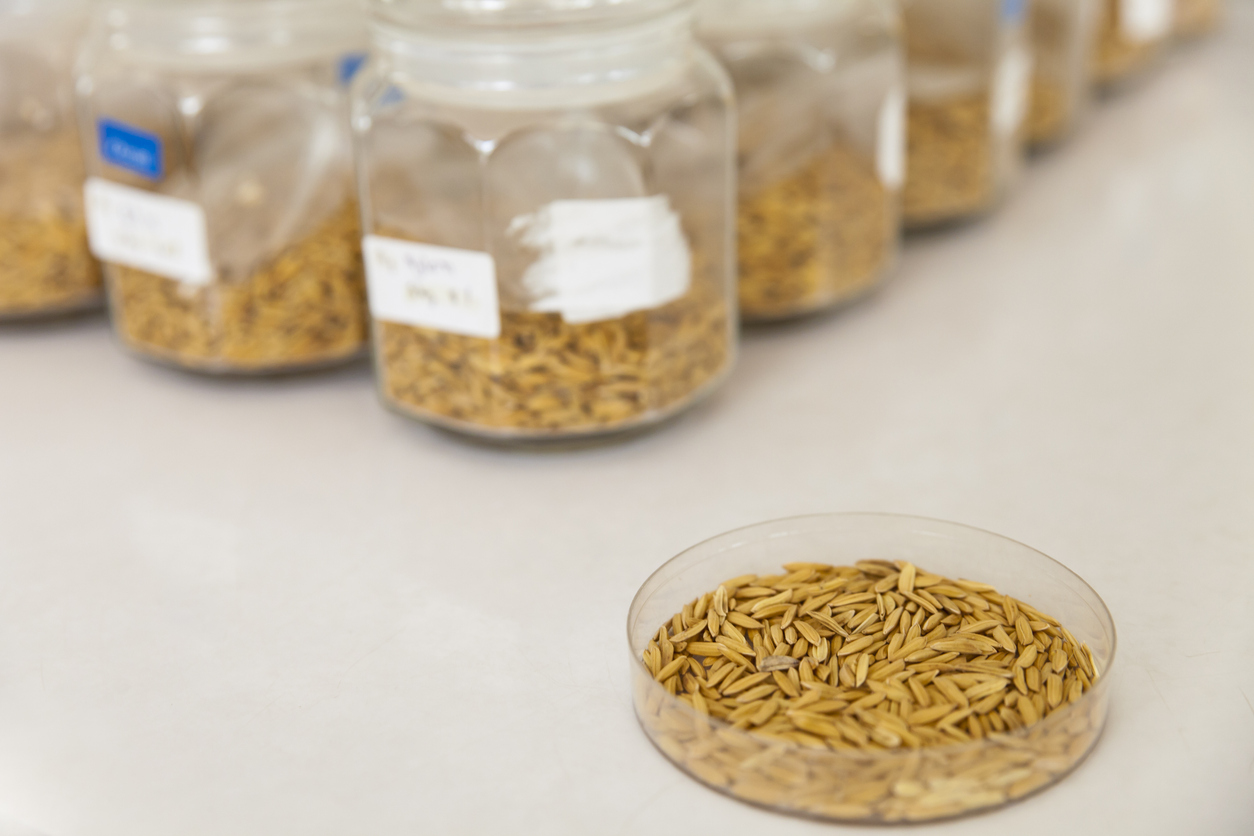
OsCpn60β1 Vital for Chloroplast Development in Rice, Study
June 17, 2020| |
Researchers from Zhejiang University and Zhejiang Academy elucidated the role of OsCpn60β1 in chloroplast development in rice. Their findings are published in the International Journal of Molecular Sciences.
Chaperonin 60 (Cpn60) protein has been known to control the folding of several chloroplast protein polypeptides. In chloroplasts, Cpn60 has two subunit types—Cpn60α and Cpn60β and the rice genome encodes three α and three β plastid chaperonin subunits. However, the functions of Cpn60 family members remains unclear. To understand the molecular mechanism of OsCpn60β1, the researchers disrupted the gene using CRISPR-Cas9.
Results showed that the OsCpn60β1 knockout rice plants manifested albino leaves and were seedling lethal. When the leaves were observed under an electron microscope, it was found that the chloroplasts were severely disrupted. OsCpn60β1 was found in the chloroplast and OsCpn60β1 is constitutively expressed in different tissues especially in the green tissues. Further analysis showed that photosynthesis-related pathways and ribosomal pathways were significantly inhibited in OsCpn60β1 mutants.
Based on the findings, the researchers concluded that OsCpn60β1 is essential for chloroplast development in rice.Read more in the International Journal of Molecular Sciences.
| |
You might also like:
- Use of CRISPR-Cas9 Revealed OsCAF1 Influences Chloroplast Development in Rice
- OsSLA4 Plays a Role in Chloroplast Development in Rice
- Chinese Research Team Finds Chloroplast Biogenesis Genes in Rice
Biotech Updates is a weekly newsletter of ISAAA, a not-for-profit organization. It is distributed for free to over 22,000 subscribers worldwide to inform them about the key developments in biosciences, especially in biotechnology. Your support will help us in our mission to feed the world with knowledge. You can help by donating as little as $10.
-
See more articles:
-
News from Around the World
- Soil Health Trailblazer is 2020 World Food Prize Laureate
- Genome Editing 101: Healthcare and Industrial Applications and Regulations
- Australian OGTR Authorizes Clinical Trial of GM Influenza Vaccine
- World Experts Release Roadmap for Next Generation Crops
-
Research Highlights
- Israeli Scientists Discover Possibilities of Plant-Sustained Electricity
- Study Reveals Transgenic Goats Can be Used to Produce Antibodies Against Cancer
- OsCpn60β1 Vital for Chloroplast Development in Rice, Study
-
Plant
- High-Efficiency Reduction of Rice Amylose Content via CRISPR-Cas9-Mediated Base Editing
- New Protocol: Genome Editing Using Rice Zygotes
-
Health
- Scientists Find Super-potent Human Antibodies from Recovered COVID-19 Patients
-
Read the latest: - Biotech Updates (January 21, 2026)
- Gene Editing Supplement (January 28, 2026)
- Gene Drive Supplement (February 22, 2023)
-
Subscribe to BU: - Share
- Tweet

